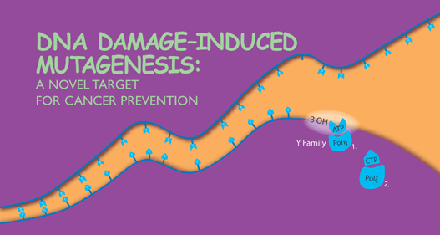DNA DAMAGE-INDUCED MUTAGENESIS
A NOVEL TARGET FOR CANCER PREVENTION
Abstract
Tolerance to some degree of unrepaired DNA damage is crucial for cell survival—more specifically, for the sustained functionality of the DNA replication machinery—in the presence of adverse (genotoxic) conditions. At least two mechanisms ensure such tolerance: template switching and lesion bypass. Lesion bypass, whereby unrepaired damaged DNA serves as template, involves the Y family of DNA polymerases; lesion bypass can be error-free or error-prone, depending on the nucleotide incorporated during translesion synthesis. Error-prone lesion bypass constitutes a major mechanism of mutagenesis and, in eukaryotes, is primarily effected by the DNA polymerase ζ (Polζ) pathway. A relationship between the Y family polymerases and the Polζ pathway is thus implicated, and conforms to the two-polymerase two-step model of lesion bypass. Based on the mutagenesis hypothesis of cancer formation, DNA damage–induced mutagenesis and its underlying molecular biology offer an intriguing potential target for cancer prevention.

- © American Society for Pharmacology and Experimental Theraputics 2001



